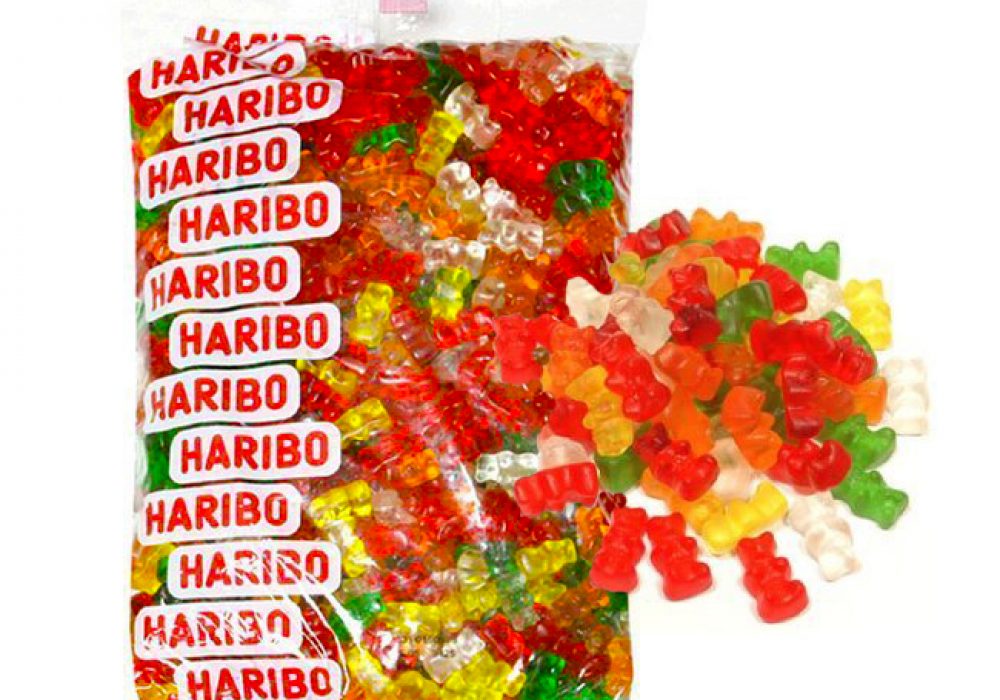When it comes to indulgent treats, few can rival the chewy delight of gummy bears. However, the zero-sugar alternative, Haribo Sugar-Free Gummy Bears, has gained notoriety for reasons far beyond their sweet taste. This article delves into user experiences, intertwines expert opinions, and uncovers the health implications of indulging in these misunderstood candies, ensuring a complete exploration of their reputation.

amazon reviews haribo sugar free gummy bears
Understanding the Appeal of Sugar-Free Sweets
In a world increasingly focused on health and wellness, the allure of sugar-free options is undeniable. According to nutritionist Dr. Sarah Smith, “Sugar substitutes allow individuals to enjoy sweets without the guilt that often accompanies traditional sugar-laden products.” For many, Haribo’s sugarless gummy bears present an opportunity to satisfy a sweet tooth without derailing their dietary efforts. The product boasts only a fraction of the calories compared to its sugary counterparts. However, as countless Amazon reviews reveal, the aftermath of indulging in these little gems may not be as sweet.
The Hysterical Horror of User Reviews
“A Gummi Bear Cleanse?”
One review, which went viral on Amazon, details the extreme gastrointestinal distress experienced after consuming Haribo Sugar-Free Gummy Bears. It read, “See you in hell, Haribo Sugar-Free Gummy Bears!” Many customers recounted trips to the bathroom that could only be described as chaotic. According to comedian and popular podcaster Joe Rogan, “You can’t unsee the horror these gummy bears can unleash. It’s like an insane challenge; will you survive?”
The Extreme Reactions
Forums and social media platforms erupted with anecdotal evidence showcasing the significant side effects that users faced. Comments varied from mild discomfort to descriptions of “The Great Diarrhea Incident of 2015.” Such extreme reactions have led experts to caution on the consumption of artificial sweeteners, primarily maltitol, the main sweetener used in these gummy bears. Registered dietitian Dr. Emma Green notes, “Maltitol can trigger gastrointestinal distress, particularly in large quantities. It’s crucial for consumers to be aware of tolerances and to eat in moderation.”
The Science Behind the Effects
Understanding the science behind maltitol can provide insights into why these sugary substitutes often come with harsh side effects. Maltitol is a sugar alcohol that, while lower in calories than sugar, can lead to fermentation in the gut, causing gas and discomfort.
Experts Weigh In on Health Concerns
Dietitian Dr. Lisa Walker suggests moderating intake: “People with sensitive stomachs should approach sugar alcohols cautiously. These sweeteners have benefits if consumed correctly, but they can also lead to severe bloating, cramping, and diarrhea.” This warning aligns with the experiences detailed in numerous online reviews, making health professionals vocal about consumer awareness.
Why Do We Love the Laughable Reviews?
Despite—or perhaps because of—their rather graphic nature, these reviews have become a source of entertainment. Online platforms have gathered lists of the most outrageous reviews, celebrating them as humorous cautionary tales. This phenomenon takes our understanding of food and health into the realm of comedy, with users delighting in shared tales of misadventure.
The Emotional Connection to Food Choices
Food choices are often laden with emotional undertones. As the writer and food critic Mark Bittman puts it, “Food not only nourishes our bodies but also our souls.” The horror stories surrounding Haribo’s sugar-free offerings become intertwined with our shared experiences, forging communal bonds through humor amidst pain—something that enhances user interaction and supports the mental well-being of many.
Maintaining a Balanced Perspective on Sugar-Free Treats
Finding Moderation
While the reviews reveal a side of Haribo Sugar-Free Gummy Bears that is both comical and cautionary, moderation remains key. Balanced diets advocate for enjoyment in food without excess. As Dr. Smith advises, “Include sweeteners in your diet, but do so in reasonable amounts, and always stay aware of how your body responds.” For many, a few gummy bears may satisfy their cravings without triggering the notorious side effects.
FAQ: Understanding Haribo Sugar-Free Gummy Bears
Why did Haribo discontinue sugar-free gummy bears?
While not officially discontinued, Haribo faced backlash from customers after reports of adverse effects became public. This prompted many to approach with caution, leading to a decrease in demand.
What is the sweetener in Haribo sugar-free gummy bears?
The primary sweetener is maltitol, a sugar alcohol known to cause digestive issues in some individuals, particularly when consumed in larger quantities.
Is there a sugar-free Haribo variant still available?
Yes, Haribo still sells sugar-free varieties of gummy bears, but prospective buyers should review ingredients and consider potential side effects before indulging.
How does sugar-free compare to regular gummy bears in terms of health?
Sugar-free gummy bears contain fewer calories and sugar than regular gummy varieties, but the health implications of sugar alcohols can counteract these benefits for some consumers.
What consumer advice can be offered?
As with all indulgences, moderation is essential. Consumers should assess their individual tolerance levels with artificial sweeteners and enjoy gummy bears in reasonable amounts.